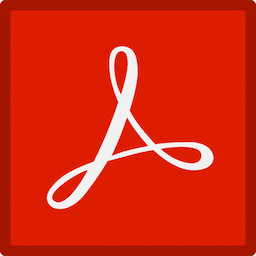The 2020 B2B Trusted Brands Report by TechoMarket Company is an annual report revealing and discussing the most trusted B2B brands of the year. The Importance Of Brand Trust: Brand trust is a fragile business asset that’s difficult to earn and easy to lose. In B2C and B2B markets, brand reputation is the driving force behind sales and a leading indicator of success. As the B2B sales cycle evolves to become more like that of B2C —where customers look to online reviews, self-service business models, ecommerce capabilities, and frictionless buying experiences—more B2B companies are hiring full-time online reputation managers to ensure a pristine customer experience, and subsequent, trusted reputation. 80% of customers trust peer recommendations, which explains why 80% of marketers believe that building trust will be their primary focus for marketing efforts in the future.1 With brand trust driving the success of B2B companies, TechoMarket uncovered what the most trusted brands of 2020 have done to earn trust from the masses.
Survey Methodology
At the beginning of each year, TechoMarket surveys B2B professionals with a customer-choice survey that lists the names of the most prominent B2B brands. The survey simply asks: What brands do you trust? Once the data is collected, which is comprised of more than 200 votes, we analyze the data and produce an overall ranking report based on the brands’ Trust Factor.
The Trust Factor
The Trust Factor is calculated by assigning a value of 100 to the most-trusted company. This year, 51.85% of customers reported that they trust the top-placing brand. We then add the difference to all other brands to calculate their Trust Factor.
What Can We Learn from the Most Trusted Brands?
The top four trusted brands of 2020 have lessons to offer B2B companies of all sizes and in all industries. Last year, marketing strategies like video and personalization were considered the driving forces behind brand trust in the winner’s circle. This year, trust is the result of something bigger: customer experience.
| 1. AMAZON Create a Frictionless B2B Buying Experience | 3. MICROSOFT Capitalize on One-Stop-Shopping Convenience |
| 2. APPLE Recognize That B2B Professionals Are Consumers Too | 4. ADOBE Embrace Digital Transformation & Disruption |
Lesson 1
Create a Frictionless B2B Buying Experience

Amazon has been a competitive contender in this report for years. This year, the ecommerce company took the win as number one. In a B2C capacity, Amazon has rigorously gained the trust of consumers as the world’s largest online retailer. But now, it has won the trust of B2B professionals after making significant investments in its B2B procurement arm, Amazon Business.
We provide easy access to hundreds of millions of products – everything from IT equipment to janitorial supplies – to businesses of all sizes and across industries,
Amazon Business’s Head of Commercial Customers, Martin Rohde.
Reimagining B2B Procurement
Amazon’s B2B procurement platform has been used by one million customers, signed by over 450,000 businesses and 50,000 sellers, and generated over $1 billion in revenue. It was created to alleviate common pain points faced by procurement and purchasing professionals like time-consuming pre-qualification processes, approvals, and form-filling. Amazon Business gives B2B customers access to an expansive product selection, exclusive enterprise pricing, fast and easy shipping, flexible payment options, and multi-user accounts.
New Frictionless Features
Amazon Business recently invested in features that have likely contributed to the Company’s uptick in brand trust. A new tool named Coupa Open Buy automatically applies a company’s spending and budget controls to its process, allowing users to source products from outside their typical catalogs without being hampered by non-compliant spending issues. The Amazon Tax Exemption Program is another new feature that allows qualifying companies to make tax-free purchases.
Lesson 2
Know That B2B Professionals Are Consumers Too

Apple has earned increased trust among B2B buyers in 2020 by embracing one simple concept: the most powerful products for businesses are the ones people already love to use. With 1.5 billion active devices worldwide, including the iPhone, iPod touch, iPad, Mac, Apple TV, and Apple Watch, it’s easy to see that consumers already love Apple for everyday technology needs and convenience.3 Now, the technology company’s business division, Apple at Work, is the preferred technology choice in the workplace for its simplicity, productivity, creativity, collaboration, and integration capabilities.
Same Products, Different Uses
With B2B transactions being more mobile than ever, it makes sense that hardware, including the iPad, iPhone, and Mac be conducive to business. These products are built for business connectivity, providing secure, reliable, compatible features that are easy to deploy. Apple’s operating systems, including iOS, iPadOS, and macOS collaborate seamlessly with Microsoft Office and Google G Suite, infrastructure services like Microsoft Exchange, and VPN solutions from providers like Cisco.
Tech Source for Small Businesses
Small businesses are closer to the world of consumerism than enterprises, and Apple made sure to accommodate these companies with a suite of helpful integrations. Applications that are familiar to the average Apple user also make for powerful small business applications, such as group FaceTime for conference calls, AirPlay to share presentations on the go, and Keynote to collaborate on documents.
Lesson 3
Capitalize on One-Stop-Shopping Convenience

Microsoft is now the third most trusted B2B brand in 2020, beating Google as its office suite rival. The reason? Microsoft offers it all. Its strategy is all about providing one-stop-shopping convenience to B2B professionals who are consciously moving away from disparate systems, solutions, and subscriptions in their companies.In a review of features, Office 365 offered more than G Suite in almost all categories, including:
Subscriptions: Office 365 offers more levels with each boasting more features than G Suite business plans
Applications: Office 365 wins the application battle; MS Word, for example, has nearly 50 templates compared to Google Doc’s five, with similar ratios for Excel versus Sheets and PowerPoint versus Google Slides
Email: Office 365 leads in “power features,” giving users more ways to filter and focus their inbox
Microsoft OneDrive
Microsoft OneDrive is the only cloud-based file sharing solution that meets these four criteria: HIPAA, FISMAA, FERPA, and US export control laws. When deploying a company-wide solution in a B2B enterprise, there’s no substitute for compliance, making Microsoft the obvious choice.
Lesson 4
Embrace Digital Transformation & Disruption

Adobe earned the trust of B2B professionals this year for a reason that can be summed up by these words from its CEO, Shantanu Narayen: digital transformation is all or nothing.5 He elaborates on the concept stating, “Digital technology is changing life like never before, which is creating fear and a mandate for companies to transform themselves.” The multinational computer software company has become a reference for B2B companies as they undergo digital transformation.
Playing the Role of a Customer
Adobe played the role of a customer, experiencing its Marketing Cloud product and service experience for themselves. The Company stressed that as its own “customer zero,” it’s important that they take the time to experience their offering for themselves through the eyes of their customers. Doing so would allow them to make improvements that would separate them from the pack.
The result? Adobe introduced Adobe Experience Cloud, which included three core solutions: Adobe Marketing Cloud, Adobe Analytics Cloud, and Adobe Advertising Cloud.
